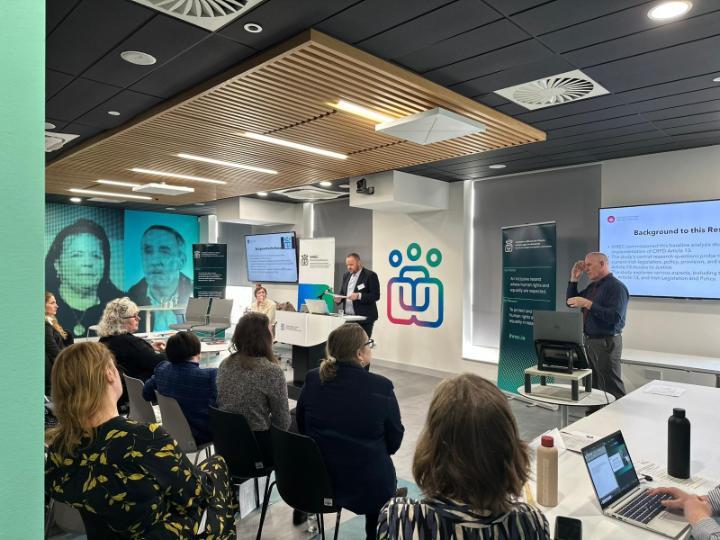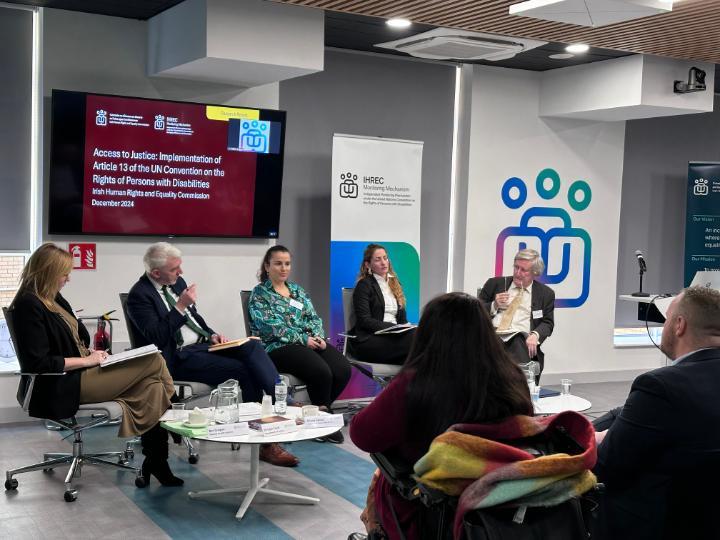-
Courses

Courses
Choosing a course is one of the most important decisions you'll ever make! View our courses and see what our students and lecturers have to say about the courses you are interested in at the links below.
-
University Life

University Life
Each year more than 4,000 choose University of Galway as their University of choice. Find out what life at University of Galway is all about here.
-
About University of Galway

About University of Galway
Since 1845, University of Galway has been sharing the highest quality teaching and research with Ireland and the world. Find out what makes our University so special – from our distinguished history to the latest news and campus developments.
-
Colleges & Schools

Colleges & Schools
University of Galway has earned international recognition as a research-led university with a commitment to top quality teaching across a range of key areas of expertise.
-
Research & Innovation

Research & Innovation
University of Galway’s vibrant research community take on some of the most pressing challenges of our times.
-
Business & Industry

Guiding Breakthrough Research at University of Galway
We explore and facilitate commercial opportunities for the research community at University of Galway, as well as facilitating industry partnership.
-
Alumni & Friends

Alumni & Friends
There are 128,000 University of Galway alumni worldwide. Stay connected to your alumni community! Join our social networks and update your details online.
-
Community Engagement

Community Engagement
At University of Galway, we believe that the best learning takes place when you apply what you learn in a real world context. That's why many of our courses include work placements or community projects.
Tab 1 Content
Report by Dr Charles O’Mahony Finds Significant Barriers to Justice for Disabled People in Ireland
On the 3rd of December 2024 (the International Day of Persons with Disabilities), the Irish Human Rights and Equality Commission (the Commission) published what it called a ‘landmark study’ on access to justice for disabled people in Ireland. The study was undertaken by Dr Charles O’Mahony of the School of Law and CPR Cluster at the University of Galway and is accompanied by a Policy Brief and Research Brief with recommendations foe reform. See here – https://www.ihrec.ie/documents/access-to-justice-a-baseline-study-of-article-13-of-the-un-convention-on-the-rights-of-persons-with-disabilities/
The study, informed by the voices and experiences of disabled people accessing or attempting to access the justice system, presents a stark picture as many disabled people face barrier layered upon barrier, trying to access their legal rights.
Despite legislative and policy developments in recent years, there is a system where at times those responsible for implementing justice are unaware of their role in facilitating access to justice. It is a system where disabled people find themselves unsupported, faced with unclear processes and limited legal representation. In some cases, they are denied justice altogether.
The report found that these barriers are due to a range of factors, including complex legal systems, inadequate training and professional development for legal professionals, inadequate provision of legal aid, lack of data and inaccessible infrastructure and processes.
The Experience of People with Intellectual Disabilities in Accessing the Criminal Justice System
One overarching theme that emerged in the qualitative research conducted related to the non-prosecution of offences, particularly in cases of violence and sexual violence against disabled people. Concerns about the ‘vulnerability’ of suspects with intellectual disability within the prison system have led to non-prosecution. Another theme related to the perceived credibility of people with intellectual disabilities as victims, including women who experience sexual violence. Participants discussed examples where victims were frequently not seen as credible witnesses, resulting in investigations being stalled or abandoned. Participants highlighted the exploitation of disabled people through online fraud, with cases often left unresolved, calling into question equal and effective access to justice. Another concern that emerged relates to the tendency to infantilise or patronise disabled people during legal proceedings, potentially hindering their ability to provide statements or information.
It was suggested that some disability service providers might restrict people they support accessing justice, particularly in relation to civil law issues. This raises questions about their role in supporting disabled people in accessing their rights. Issues related to legal representation were also prominent, including the need for legal advice before arrests or charges. Examples were given of Gardaí seeking information on mental capacity and medical records without providing legal representation, which raises concerns about privacy and consent. Support, training, and accessibility within the criminal justice system were themes that emerged. Participants suggested a pressing need for more and better training for Gardaí and legal professionals on effective communication with disabled people, along with a call for greater use of intermediaries.
People with intellectual and cognitive disabilities were seen as unreliable witnesses due to misconceptions about their abilities. Similarly, examples of victims with disabilities being discouraged from pursuing justice by Gardaí was identified, suggesting systemic biases.
Despite these challenges, some participants noted instances of positive experiences where Gardaí have shown sensitivity and support and a greater willingness by the Director of Public Prosecutions to prosecute cases where the victim has an intellectual disability. Participants identified independent advocacy as important in vindicating the rights of people with intellectual disabilities during legal proceedings. The challenges in securing expert reports for some disabled people in the criminal justice system was identified, due to the inadequacy of legal aid. These cross-cutting and multifaceted themes demonstrated the complex range of barriers faced by people with intellectual disabilities in accessing justice. Participants emphasised the need for reform, heightened disability awareness raising, training and a commitment to ensuring equal access, and provision of accommodations.
Conclusions and Recommendations for Reform
Ultimately, Dr O’Mahony found that public bodies within the Irish justice system often inadequately address the needs of disabled people in their strategic plans. Therefore, they fail to reflect clear legal obligations designed to facilitate accessibility and prevent discrimination. The findings informed a range of recommendations that seek to address these failures and work towards developing a harmonised legal framework that respects the rights of disabled people on an equal basis with others.
There are over 10 pages dedicated in the Report to recommendation for reform. Some of the key recommendations include:
- Enhancing Advocacy Services
- Expanding Legal Aid and Legal Outreach Services
- Awareness and Education Initiatives
- Training for Justice System Personnel
- Initiatives for Achieving Greater Diversity in Legal Professions and Judiciary
- Awareness about Less Visible Disabilities
- Providing Procedural and Reasonable Accommodations
- Accessibility Improvements
- Communication Training
- Data Collection, Analysis and Dissemination

Dr Charles O’Mahony presenting the findings of the research at the launch. With Professor Anna Lawson from the University of Leeds who launched the report.

Panel discussion on the findings in the Report. Pictured from Right to Left, Chair: Justice John MacMenamin (retired Judge of the Supreme Court), Sofiya Kalinova, Barrister-at-Law, Eliona Gjecai, Member of IHREC Disability Advisory Committee, Liam Coen, Department of Justice, Ber Grogan, Mental Health Reform.
















